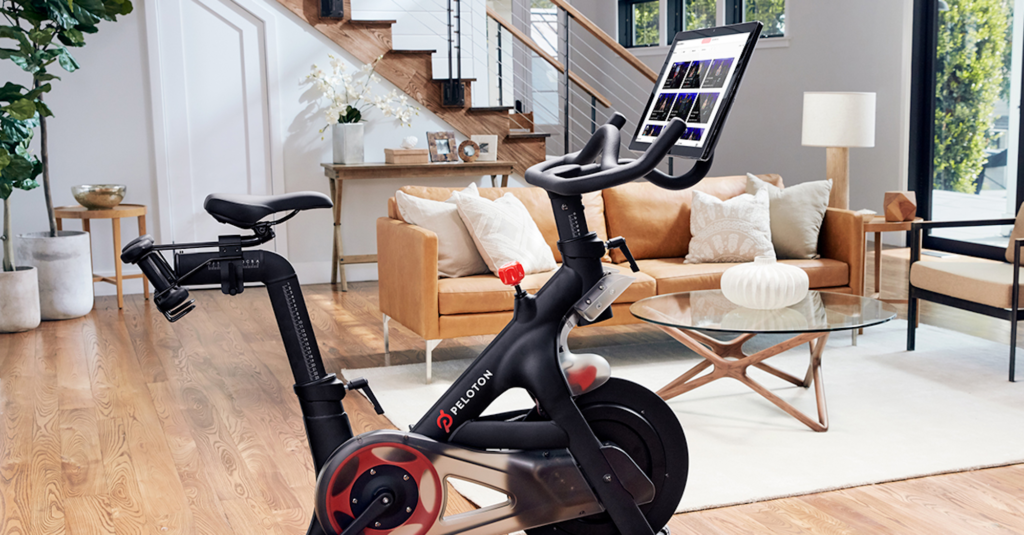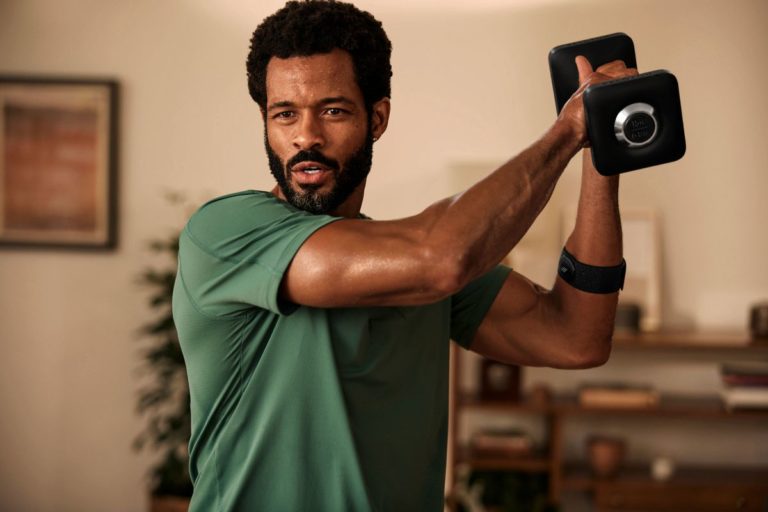Published: September 7, 2018
Almost since its inception, Amazon has been disrupting industries the world over. While the company and founder Jeff Bezos have—and continue to—encounter their fair share of detractors, Bezos has remained steadfast in his belief that, someday, Amazon will sell us everything.
Sure, retailers like Barnes & Noble and Best Buy are the most obvious examples of Amazon’s wrath, but as the company continues its aggressive growth, there are a number of health- and wellness-related categories that should be on high alert.
Athleisure
What do sportswear brands Goodsport, Rebel Canyon, and Peak Velocity have in common? They’re all part of Amazon’s private-label activewear collection. Yep, the online superstore is coming for the likes of Nike, lululemon, and Under Armour.
They’ve even tapped Makalot Industrial Co. and Eclat Textile Co. to contribute to their efforts. Don’t sound familiar? The former manufactures products for Gap Inc., Uniqlo, and Kohl’s, while the latter makes high-performance sportswear for Nike Inc., Lululemon Athletica Inc., and Under Armour Inc.
As the company continues to steer shoppers towards its own products, expect them to capture a larger share of the activewear market. Until then, they’ll continue to take a cut of third-party sales from its competitors — for example, Nike has some 16,000 products listed on Amazon.
Supplements
In 2017, Amazon expanded its Elements line to include vitamins and supplements like Vitamin D2, Turmeric Root Extract, Calcium Complex, and Vitamin K2. Aiming to distance itself from supplement makers and sellers who’ve come under fire for pushing fraudulent products, Amazon is taking steps to gain consumer trust. For example, the company verifies the potency, purity, and integrity of the ingredients, as well as shares its test results on the site.
While the Elements category was shown to be growing 90% YoY, competitors have more to worry about than dollars and cents. Amazon is effectively regulating the quality of supplements in its marketplace by creating a private label with an emphasis on quality and transparency. Competitors will be forced to adhere to this baseline or risk being overrun by Elements and other higher-quality products.
Groceries
Two words: Whole Foods. The Amazon acquisition was a massive blow to grocery stores and the fallout continues to stretch far and wide. Prior to the purchase, Amazon already owned 18% of the US online grocery market (double that of Walmart, the next closest competitor). While that number is expected to grow, other grocery stores aren’t going down without a fight.
The Amazon/Whole Foods deal set a series of dominos into motion. In an attempt to keep up, Albertson’s bought meal kit startup Plated for $200 million. Following suit, Kroger bought meal kit company Home Chef in a deal worth $200 million.
Meanwhile, Blue Apron inked deals to sell their meal kits at grocery stores as Walmart launched their own kits. Of course, these moves are being made as competitors anxiously await Amazon’s foray into meal kits. Will they matter once Amazon decides to offer the service to its 100 million Prime customers? Time will tell.
Still, meal kits are only one piece of the grocery puzzle — delivery looms large. While Amazon and Walmart battle it out on a local level, Kroger—who’s currently leading grocery delivery sales—has been busy making deep investments into delivery. Entering into a partnership with UK supermarket giant Ocado, Kroger is spending $400 million to build 20 new warehouses, to be used for fulfillment and pick-up, over the next three years.
And Kroger isn’t stopping there. Recently, they announced a partnership with Bay Area autonomous vehicle startup Nuro to test the delivery of groceries in an unmanned road vehicle that will steer itself from the grocery store to your front door.
Small & Local Brands
As to be expected, some changes aren’t going over well. For one thing, suppliers see the Amazon acquisition as overtaking their shelf space. This trend is especially worrisome for upstart and local brands.
Historically, Whole Foods has been an incubator for groundbreaking food brands. The company would even employ “foragers” who would seek out unique brands on a local level, waiving promotional costs and slotting fees.
However, going forward, local brands will be expected to pay demo fees and, according to the Washington Post, some brands are already seeing their shelf-space reduced in favor of larger, national brands. Worse, organic activists, farmers’ advocates and economists are worried that these changes will force producers to compromise on environmental standards and ingredient quality as they attempt to cut costs.
Looking ahead
Amazon’s billion-dollar PillPack acquisition is the elephant in the room. Consider the pharmacy sector on alert. The same goes for the healthcare industry — Atul Gawande started his first day as CEO of the newly established Amazon, Berkshire Hathaway and JPMorgan health venture. While these topics deserve a briefing of their own, suffice it to say, change is coming.
Amazon’s impact on the pharmacy and healthcare industries can’t be understated, but I’m going to leave you with a glimpse into the future that would be crazy impactful and a whole lot of fun…
What if Amazon acquired Peloton?
With hundreds of billions of dollars on hand, Apple has been rumored to be a potential purchaser of Peloton. It makes sense, but take a second to imagine an acquisition at the hands of Amazon. On the basis of the topics we’ve covered here today, an Amazon-Whole Foods-Peloton union would be the holy trinity for health-seekers.
Think about it: Amazon is investing in content, and Peloton is a content company. As Amazon pushes Alexa and voice, Peloton’s equipment would be another screen/device in the house. Oh, by the way, Amazon’s Alexa Fund recently participated in Aaptiv’s $22M Series C.
Amazon is looking to sell activewear and nutritional supplements, I’d bet a few of Peloton’s 600,000 subscribers would be interested. And I’m sure they’d love to earn some rewards to Whole Foods for completing fitness classes… as if they’re not shopping there already.
Then, imagine the tie as Amazon’s healthcare ambitions play out — think prevention, personal data (Amazon and Whole Foods purchase history and Peloton fitness tracking), and incentives for healthy individuals.
Will it happen? Who knows. But if it does, you heard it here first.
Want to get in touch? Email anthony@fitt.co with tips, questions, or to continue the conversation.



